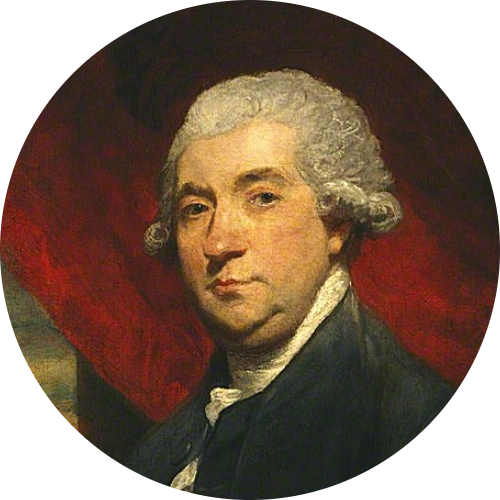Robert Ord was a British lawyer and politician, who succeeded to the high office of Chief Baron of the Scottish Exchequer (1755-1775).
Ord was the son of John Ord, attorney and sometime Under-Sheriff of Newcastle-upon-Tyne, and his second wife, Anne Hutchinson. He studied Law at Lincoln's Inn, qualifying as an advocate in 1724.
From 1734 to 1741 he served as Member of Parliament for Mitchell in Cornwall, and from 1741 to 1755 for Morpeth in Northumberland. He was Secretary to the Chancellor of the Exchequer (1742–43), and Deputy Cofferer of the Household (1743–44) before, in 1755, he was appointed Chief Baron of the Scottish Exchequer, a position he kept until a few years before his death.
Ord married Mary, a daughter of Sir John Darnell, kt., with whom he had at least two children, Elizabeth1 and John (1729-1814)2
Boswell went with William Forbes, William Scott and Dr. Johnson to a sermon in the English chapel in Edinburgh on August 15, 1773. Following the sermon, Boswell "obtained promise from Lord Chief Baron Ord that he would dine at my house next day. I presented Mr. Johnson to his lordship, who politely said to him, "I have not the honour of knowing you, but I hope for it and to see you at my house. I am to wait on you tomorrow."
Boswell further noted, in his Journal of a Tour to the Hebrides, that "This respectable English judge will be long remembered in Scotland, where he built an elegant house and lived in it magnificently. His own ample fortune, with the addition of his salary, enabled him to be splendidly hospitable. [...] Lord Chief Baron Ord was on good terms with us all, in a country filled with jarring interests and keen parties; and, though I well knew his opinion to be the same with my own, he kept himself aloof at a very critical period indeed, when the Douglas Cause shook the sacred security of birthright in Scotland to its foundation."
